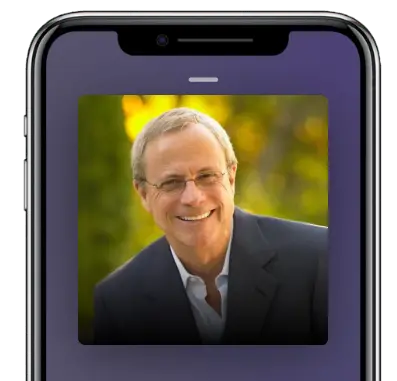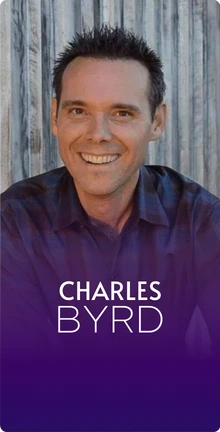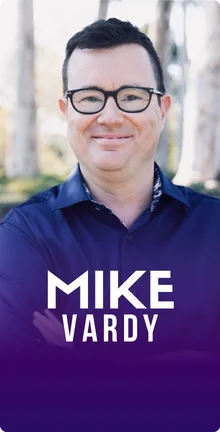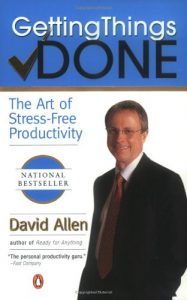
David, it’s so great to have you on the show.
Stephan, thanks for the invitation. Always delighted to chat with you.
We used to hang out in Lisbon not too long ago, in summer, that was really enjoyable. You taught a keynote and a workshop after that. Before we dive into some of the core philosophies of Getting Things Done or GTD, I wanted to get a sense from you of how this phenomenon has changed and morphed over the years that the book first came out because it came out in what year?
The first edition came out in 2001.
2001 and now we’re almost 20 years later, a lot of changes have happened. We’re so much more distracted now. Things like Facebook and our smartphones that take us out of the moment, out of our flow state and into this dopamine addiction of the next shiny object. How has GTD morphed through the changes that you’ve seen in the world?
GTD actually hasn’t changed as such. I had understood it. I wrote a second edition because I wanted to keep the book more evergreen and also updated a little bit with my understanding of the core elements, and then why it has produced such profound changes for people. As you know, it’s in a way, kind of “duh” simple stuff, right?
In a way, the principles are old as dirt, so they’re not going to change. If you’re trying to keep more than four things in your head, you’re head’s a crappy office and you’re going to be driven by that. That’s now a new, just been validated cognitive science data. I’ve sort of recognized that 35 years ago, so a lot of the essence of what GTD is about building the external brain, a trusted source externally to free up your head, to be able to do what it does best, which is make good, intuitively-driven, intelligent choices about your options and what to do.
You’ve said that our brains are factories not warehouses, something like that.
They’re really there to capture process and distribute stuff. That’s the essential core part of your brain, as you evolved, is the limbic part. It keeps us alive on the Savannah, in the desert, in the jungle, which is very present tense. It sees the 360-environment, it’s as valid, uses long-term memory and pattern recognition to state, “That’s a bear. There may be a snake over there or there’s a berry in the tree. That’s a thunderstorm coming. The baby’s crying.” As opposed to vibrations, light, and sounds, the brain evolved into very cool stuff.
Would you go to the store for lemons and come back with six things and no lemons? What happened? You tried to use your brain to remember, remind, prioritize, and manage relationships with things in the past and future which it does not. It did not evolve to do that but you must do. This has really been shown up, particularly in the last 100 years with knowledge work, where you actually have to think to figure out what to do as opposed to having it evident and in front of you for survival reasons or just cranking widgets in terms of what you’re doing. As soon as you have to think, that means there are algorithms, or formulas, or thought processes you need to apply.
I recognized those back 35 years ago as I began to do this work. In a sense, those won’t change. When we fly to Jupiter, whenever we do that, you still need an in-basket and you still need to decide, “Gee, that’s a thing.” We have our attention to the next action. You still have to define what the work is as its coming to you, if it’s not self-evident, what it is. That’s, in a sense, the new world we’re in but that’s been true for the last 100 years for most people.
Productivity is all about efficiency. Being an effective human being is becoming efficient toward a higher horizon. Share on XThe big difference, Stephan, is that when I first wrote the book, it was really targeted to the fast-track professional because they were the ones experiencing the tsunami of emails, input, overwhelm, and potentially overwhelm about that stuff. What’s different is now, as opposed to 10% of the population, 90% of the population needs this. Everybody’s got that issue now because of the stress of opportunity, all those dopamine-producing things. Just the fact that your iPhone was in your pocket produces a dopamine rush. Even if it’s not ringing, you’re wondering who might.
Would you say that everybody has urgency addiction these days or most people? It’s just not a once-in-a-while phenomenon?
I don’t know. It’s just anecdotal. Come on and send me three Stephans. If I don’t hang out with a lot of people and I’m not doing any major research with all what the kids are doing and everything else, but just anecdotally, it’s all the same. They had the same issue when the telephone showed up. They had the same issue when the automobile showed up. “Oh my God. The world is going to hell in a handbasket because of all these distractions. Oh my God. They can go make-out in the park in a car. Oh my God. The world’s coming apart.”
Since apart from there’s nothing new in the sense of as technology has changed the nature of our social engagements and opportunities, then it’s always created the two sides of the knife, the two edges of the coin. Don’t shoot the media, by the way. If you know what you’re doing, it’s a great life to be alive. You and I are chatting. Where are you? In Southern California, I’m in Amsterdam. Come on. We’re talking to each other, right?
It’s pretty amazing.
There’s an expression that goes something like, “Money just amplifies who you already are.” Don’t you think technology is the same thing? If you have a smartphone that has more computing power in it than the supercomputers of the 1960s, that just amplifies who you already are. If you’re distracted, ineffective knowledge worker, that just makes you more distracted and ineffectual.
That’s actually true. I’d say that, in a large way, that’s true for the larger population. However, the people who are most attracted to my work are the people who need it the least. They are the people who are most proactive, most aspirational, and most productive, but they know systems work. They’re just up to here. They just need more room and more space in terms of what they’re doing.
That’s something that reminds me of the people who go to a therapist are the ones who need it the least, right?
Yeah. The interesting thing about that is that if you are interested in being better, if you’re a life-long learner in some way, meaning you’re always interested in, “What can I do better? What can I do more? How can I influence better? How can I either make more money? How can I be more relaxed? How can it be more fill in the blank, XYZ?” If you have somebody who’s already wired that way, then the tech can be a huge benefit because word processors and spreadsheets change the world. Excel runs 90% of the businesses, probably in the US, right?
Or maybe Google Sheets now.
It could be, but the idea of a spreadsheet or the idea of a word processor, because I know the people that built those initially, and those were game-changers. Those really made people a lot more productive. Not only that, they allowed you to be able to do a lot more cool stuff and be creative. A word processor works much more like your brain. Your mind likes to have ideas and later on figure out what to do with them but you’re probably not old enough to remember the erase tape and manual typewriters.
Actually, I learned how to type on a manual typewriter.
Did you use erase tape? If you made a mistake, you had to put the tape in and click the wrong key again to erase.
I did.
Excuse me.
I know. I look young, but I’m actually 48.
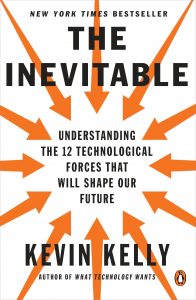
Before you write anything, it must be perfect. Now, you can write anything you want. Write a crappy first draft. Great way to write anything, right? But now, because word processors allowed you to do that in a different way. There are tech things that had made a huge difference for a certain percentage of the population of people that’s allowed them to do that. I think that’s probably still going to continue. Though I haven’t really seen a whole lot different than if you read Kevin Kelly’s book, The Inevitable. He’ll say AI and virtual reality are really going to change the world more than even the industrial revolution did.
I believe that.
That’s TBD. We’ll see. We’ll see at what level that shows up. Anyway, that’s a long non-answer to your…
No, that was a good answer. That was a good answer but with AI and all the technological innovations that are coming, Rick Erstwhile had said that the last 100 years of technological evolution would actually fit into the next 20 years because today’s rate of change is so much faster than it was back 100 years ago and it continues to accelerate. It actually wouldn’t fit into the next 20 years, the last 100 years, that’s if the rate of change stayed constant. No, but it’s continuing to accelerate even more so to fit into the next 12. So, 12 years from now is going to look like a Star Trek episode.
And that, Stephan, when you say what’s different, what’s different is the audience and the need in the audience has changed because the speed of change is speeding up. The problem is that when people don’t have a self-management behavior set or set of best practices habitualized yet, how rapidly can they reconfigure their life when a significant change happens?
Your parents, certainly my parents and maybe yours too, didn’t have to really change their whole life and lifestyle, thought process, and everything they were doing more than maybe half a dozen times. You and I have to do it weekly, right?
Yes.
One of Kevin Kelly’s points were you’ll never get really good at anything because everything’s going to be constantly upgraded—your refrigerator, your washing machine, your computer. I have to now update quicker. I used to say I could wait three more iterations or whatever, but no longer because one of those is not going to work with some of my old stuff. We’re constantly going to have to be learning. Constantly, we have to keep ourselves updated. There are no laurels to rest on very long anymore.
It’s not going to be sufficient to be a knowledge worker. You’re going to have to be a wisdom worker bringing different creative disciplines together, merging them together in innovative ways, and doing stuff that isn’t easy for an AI to do.
Not only that. I just read a statistic not long ago that I forget by what year, but pretty soon 50% of the vertical workforce are going to be self-employed. A few years of showing up at your work, being told what to do, getting a paycheck, and leaving at [5:00] PM, that world is gone. Your ability to manage yourself, even if you’re working in the virtual companies now because everything is so global.
You and I, we’re talking. My wife is running part of our businesses as I’m speaking, talking on Zoom, to our staff. One in Medellin, one in Monterey, and one in Denver. That virtual world means you better manage your own life so that I can at [6:00] PM manage my life, as well as, I could be anywhere else at any other time if I need to do that. There are new demands and new opportunities obviously, but new demands, to be able to take advantage of those opportunities and you got to be your own boss these days. That’s a pretty big change for a lot of people.
For sure and I think we’ve made a pretty compelling case for everybody listening to this episode implementing GTD.
That’s why I came up with it was I’m this laziest guy you can imagine and I like to be clear in my head and have my brain clear enough to be open to internal and other opportunities. As opposed to being distracted and hung-up on something that I haven’t manage very well, that allows my attention to be distracted. That’s 35 years of my professional career was figuring out these algorithms, about how to do that. What’s changed is just the need for it, the audience for it, and understanding of how important it actually is.
Let’s talk about what GTD is and what it isn’t. It’s a productivity phenomenon or it’s a methodology, it’s also a book, but it’s not about habit formation. It’s not about distractedness, although we do suffer from a lot of distractedness. What is GTD and what isn’t from your standpoint? My idea is, so you can correct me if I’m wrong.

There are other subtleties that lie inside of that, but to a large degree, it’s about stopping using your head as your office and building externalization of your commitments, what has your attention, and being able to model or manage a set of inventory of appropriate maps for your life to orient yourself in space and time anywhere you are, no matter what happened. What do I need to know? What do I need to be aware of? How do I then integrate all of that? Get the gist of all of it and make a trusted choice about what I do at any point in time.
It’s like you have a second brain, essentially.
If you have a calendar, you already do. Either your head’s the place to hold stuff or it’s not. I challenge anybody to intellectually justify halfway in between.
Because if you have a system that you can’t trust because you separated some of it out into multiple systems or you’re not using it consistently, then you default to using your brain and then you don’t have a trusted system.
Yup, and most people don’t trust either their heads or their lists.
Well, that’s a big problem.
Sorry, don’t shoot the messenger. I’m just saying, “Look. That’s the way your brain is. That’s how it works.” I distribute out in a sense, a mechanical process, pretty subtle, but it is a mechanical process. What’s got your attention right now? Should I get divorced? Should I fix this tooth right now? What do I do about my kid’s education? What do I do about the dog that my daughter wants?
In fact, one of the things you had us do was to do a mind sweep as part of the workshop to get that all out of our heads onto paper or into an Evernote or whatever, so that we can clear our minds and get into that state of mind like water that you talked about.
And it’s not just to write it down. That’s the first important step is to identify what has your attention, but then you have to go through a thought process about those things you write down. Why do you write it down? What does it mean to you? What are you going to do about it? What commitment do you have about it? What’s the next action you might need to take to move the needle on that toward closure? And then, where are you going to park the reminders of that?
There’s really a capture, clarify, and organize. That’s the critical three-step process that you need to do if you want to get your head clear. I don’t care how much mindfulness training you do. If you need cat food, if you haven’t written it on a post-it on the fridge that somebody’s going to go get cat food, it’ll still pop in your head when you’re trying to meditate. I’ll wake you up at [3:00] AM and cat food will take up that same brain space in your head as I need to write a business plan. If you don’t externalize it and don’t go through this process, then how would I clarify exactly what that means?
I just discovered a way to essentially vacuum clean your head and then make sure you could keep it clear, then utilize its ability in making good intuitive choices out of your options. You don’t want your brain to remember what errands you need to run. You want to look at the six errands you already decided you need to run and then make a choice about which ones you want to do today. That’s a huge change.
Most people confuse capture with organize. “Oh, let me write down what I need to do. Oh my God.” Then they look at something called “mom,” or “bake,” or “cat food.” They don’t really go through enough of the algorithm of what you need to do to really get stuff off your mind.
Right, because you have to identify, is this the next action or is it an entire project? A project, you define, is anything that’s more than one action, really clarified things for me. That was very helpful; I learned that over a decade ago.
That’s huge, Stephan, if you did that. Very few people arguably even come close to having a complete or recurrent and a well-defined project list. That’s one of the most talented things you could do if you want to sort from top to your gain.
Then, put it in that trusted system and keeping it fresh and up-to-date. That’s a game-changer. I have a couple of trusted systems that I love your feedback on. One is I use Things which is by Cultured Code for the Mac and also for iOS. They do sync with each other so that’s really awesome. It does support a lot of the capabilities of GTD like being able to assign a context to items so I can say, “This is @office, @errand, @home, @phone, etc.” Then, I can filter down to just see the next actions that are in a particular project or just across the board. All next actions that are in that context of phone calls or errands. Again, a huge game-changer.
My problem, though, is that I don’t keep it up to date. I don’t do enough of the organizing and processing of these actions. So, even though they’re mostly written as verbs and they’re not like “mom,” kind of cryptic items, most of my items don’t have the context associated with them. I haven’t identified if it’s deep work or shallow work; I have tags for those as well.
A bunch of things hasn’t been done, so it’s not a system I would probably show you and say, “Look at what I’ve done,” but at least I have a trusted system. I don’t have Post-it notes everywhere anymore, backs of envelopes with notes scribbled on them. All that’s gone and that was terrible. That was a horrible time, a decade-and-a-half ago, and before that is just crazy.
The first step in becoming more productive is answering the questions, What are you here to do? and How well are you doing it? Share on XThe other thing that I use is Evernote. Anything that I’m capturing that is a note or just reference purposes, I’m taking notes or I’m in an event and it’s a really great session. Those things will go into Evernote. Actually, I use a reMarkable tablet to handwrite, and then the reMarkable tablet can OCR the scribbles into text, and then I can load that into Evernote.
That’s my system. It’s Things, Evernote, and the reMarkable tablet. I’m curious if that’s a pretty good set of tools. And, of course, Google Calendar with the calendar app. I actually use the Fantastical app. I find that to be better and that syncs with my Google calendar. That’s my system or toolset.
Anything on your mind about any of that?
Well, I do have a question around what do I put into the calendar versus what I put into Things, or do I double Things up? How do I synchronize the two? I know you can link items together that are in between Evernote and Things using links and stuff. There are some sophisticated things that I could do that I haven’t been doing but I guess that’s a good starting point. Do I double Things up? If it’s a date-based thing, do I put it in the calendar and do I put it into Things, just put it into the calendar, or just into Things? Actually, I know I don’t put a just into Things. If it’s a date-based thing that needs to be done on such and such dates or it’s a meeting that I’ve got to have on that date and I need to block out that time, I’m going to put on my calendar.
How long would it take you to look through all of that and then make sure you’re not missing anything?
Oh my goodness. So this is why I don’t do regular weekly reviews and I know this is the cardinal sin of GTD, but you don’t do weekly reviews, this is my take on it, you’re not really doing GTD.
Well, no. You just don’t have a clear head. You’re head’s trying to do a weekly review all the time if you’re not doing one.
That’s a good way of putting it.
Everybody says this is extra work. I’m sorry. Extra work is not doing it. Then you’re trying to do it all the time and not finishing. “What should I be doing? What should they be doing? What am I missing? What have I…? I feel like I’m…” So, the ambient anxiety you are used to is just keeping you from moving to the next level of gain. That’s your addiction to your ambient anxiety. You’re fine with it.
Fair point.
Sorry, you asked. That’s the problem. But I use all those things. I use Evernote, it’s just for reference, I don’t use it for any reminders but it’s a great reference tool for cutting and pasting stuff to the place you might want to see it again, good restaurants that I want to go to, the fun jokes, all kinds of great stuff in there. I got all kinds of list, there’s all kinds of things everywhere, all over the place. I just don’t have any intention on those. Those are parked somewhere that in case I need it, I know where to find it.
You have to have tags properly set up in Evernote.
No, forget tags. Tags are way too much trouble. You’ll do tags when your inner geek shows up on a rainy Saturday, but you’re not going to use them on Monday with the fire hose and your day is hitting you in the face.
Really? Because I took a course from Charles Byrd, I don’t know if you know Charles. He’s a cool guy and I’ve had him on the show and we talked all about Evernote. He’s got this really awesome, sophisticated tagging system that allows him to find anything in Evernote within about three or five seconds max and he’s got 30,000 notes in Evernote.
It depends on your personality type. The OCD-ers are going to love that and make that work. The ADD-ers won’t bother getting past about 30 minutes of that, going to be too many clicks, too many things you have to do, too many in search you have to have to trust that you’re actually going to see everything that that tag should be tagged too.
What if you have OCD and ADD?
Then you’ve got a problem on both ends. Well, not a problem, it needs to be as simple as possible, you just need to know what you’re not doing right now. By the way, you’re way ahead of the planet, just in terms of everything you’ve done already and what you’re doing, but if you want to know, is there a next level of gain? Yes, there is, but it’s still customizing, you need to try it. Well, am I still willing to do that three months from now? That’s the key.
A lot of this stuff is fun and it’s easy to say, “Wow, I could connect this, I could connect that.” That’s great. But are you still using this on a day-to-day basis to get your life straight and keep your head clear? If you are, keep it in your act. If you not, try something else, or simplify it a little bit more, in terms of what you’re doing. That’s the big problem.
Things is great. I’ve worked with several fairly well-known people that wound up using Things just because it was simpler and it was easier to use than Focus or some of the other iOS things have been built out there in terms of list managers. They’re still very labor intensive. You still have to connect in with calendar, you have to connect with the email. Those things don’t do that, you have to do that yourself.
You have to figure out what is your overall gestalt system and how do I worked that? Sorry to say there’s no technology that yet does that. You have to know what the thought process is and you have to be concerned about, “Why is this on my mind again? Where should I put that? Is that the right place to put it? Am I looking at it as regularly as I ought to, to make sure it gets off on my mind?” I even need that regularly. As a matter of fact, one of the things I’m doing this afternoon is going and curating some of my old databases because I’ve thrown stuff in there and I hadn’t looked at it for a long time. I thought it’s time to come and clean up on that a little bit of a hiatus of my life. There were some big projects we just finished.
I’m using this time to clean up, to curate, to look back, and, “Okay, is this the system I need? How simple is it? How can I make it?” That’s an ongoing process, so you don’t stop doing, you don’t stop organizing because things change by the nature of time. You have stuff in your drawers, by the way, that belong there, when you put in there. They don’t belong there anymore. Things have changed. You don’t finish organizing. Organizing is just simply making sure that things are match to where they meant to be, but what they mean to you changes.
When in doubt, clean your drawer. When in doubt, find something. I’ve got a note as you do, probably anybody listening or watching this has a weird electronic gadget drawer. Like, “Oh my God, what is this?” “Well, the thing died but the charger, I might need that.” Or, “I don’t know what the hell this is. I just found it, but it probably looks important. This might need to be plugged into something.” Or you put together some IKEA furniture and you wound up with three extra pieces that should have been in there, “Oh my God, is it going to fall apart while I sit on the couch?” I got one of those drawers, that’s fine. It’s just that’s where all those things are, it’s not spread all over my universe.
Do you periodically purge that stuff as far as doing a process?
Yeah, but I can’t get anything else in there. I got something else I want to put in there, but I have rules like, “Okay, clean the drawer.”
Are you familiar with Marie Kondo?
Yes.
Have you tried her approach of holding…
I’ve lived her approach for 35 years. If you don’t need it, throw it away. Keep your life as minimal as you need to. Does it turn you on? Keep it. If not, don’t.

You got a pretty big pile of books there right next to you.
Those are all of my books in all the different languages that they’ve been translated into. I just need one place to put them. I was going to throw them all away. Catherine said, “You know, at some point, make sure you have the archive of at least one copy of all of those,” but I don’t have many others. As a matter of fact, we give all of our books away once we read them.
Awesome. Which one of your favorite books isn’t one of yours?
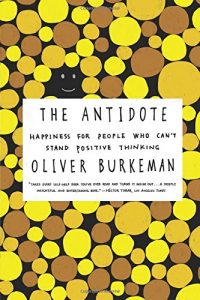
A book called, The Antidote.
What’s that about?
Oliver Burkeman is his name. It’s happiness for people who can’t stand positive thinking.
Is that you? Someone who can’t stand positive thinking?
Well, when you read this book, the book is much more sophisticated than the title. It’s a great title, by the way, but it’s like he’s pushing up against the Rah, Rah, Sis Boom Bah, don’t have any negative thoughts, it’s all positive, it’s all whatever. He goes back to the stoics. He goes back to a lot of stuff about the necessity to accept current reality in whatever form it is. Otherwise, what you resist, you’re stuck with. So, there’s a whole lot of that. Again, it’s brilliant stuff, so I totally agree with him.
It’s one of the few books my wife reads and as she was reading, she was just laughing out loud. He’s a great writer and it’s fabulous. It’s for those who have ears to hear. It’s a really good book to read. He doesn’t put down positive thinking, future thinking, and any of that kind of stuff. He’s just talking about people who try to pretend that not dealing with reality in whatever form it shows up—the church that was in the rah-rah-rah went bankrupt two years later. There’s a lot of examples he uses that make it pretty evident that you need to be a bit more mature in your thinking and in your acceptance of reality.
Then you can use all that other stuff in a much more elegant way. That’s a lot of, in a sense, what getting things done is about, because a lot of people resist it because, “Oh my God, you mean I have to write down everything that’s got my attention?” It’s called current reality, dude. People get mad at me for their list, I’m like, “Excuse me. Ain’t my list. Whose list is this?”
It usually has at least 100 things on it, like just when you do mine sweep, you might have 100 to 200 things that you jot down in a single session. How many books do you have that are not yours there currently?
Not many.
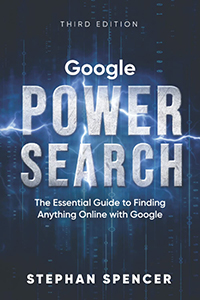
Do you still have mine? Do you still have the Google Power Search?
Yes, I do. It’s in the living room because I still want to review it. That’s sitting in there, I still want to go through that one, but otherwise…
That’s a good one because if you read Google, it’s going to be very helpful for you.
Sometimes, you can’t know it all, leading in the age of deep expertise. I get a book a week that people want me to endorse it, read it, or whatever. Some of these I just keep until I have a moment where I could look around see actually what it is, if I’m interested in it.
That’s a great title for that book. It’s so true. All right, so do you schedule time for your learning, like for up-scaling and…
I don’t schedule my time for anything unless I have external commitments.
I got you. So, if it’s not an external commitment, it just goes into your trusted system in what things or what do you use?
We still use IBM Notes which is now HCL Notes, I believe. They just bought it from IBM, the old Lotus Notes, we still use that. A friend of mine designed software based on my methodology that sits inside of or on top of Lotus Notes that reconfigures it as close as anything else I could find out there that actually matches my stuff, so that’s what I still use.
Okay, what’s the name of that plugin or that tool?
eProductivity. Some things about the Things app are a little frustrating for me because it’s not totally GTD-compliant. There is a “someday,” but there isn’t a “waiting for,” inside of Things, and I’m like, “I really wish there was a…”
Can’t you create a category?
I created a tag for that, but I’m a stickler for details and I want it over in the left-hand bar next to “Someday” I want a “Waiting for.” I just want that. Anyway, you don’t schedule your learning, you don’t schedule time for downtime or whatever or…
How often should you and your life partner talk about your lifestyle, career, and where you're going? As often as you need to. Share on XWell, I do all kinds of stuff that’s not on any of my lists. I have the freedom to do that because of my list. Can I take a nap? Let me look. Yeah, nap time, power nap. I’m out. You won’t see nap on my calendar, but I think them almost every day, if I can.
How long do you take a nap for?
Anywhere from 20 minutes to 2 hours, depending on how long I can and whether I stay asleep. Better than a cup of coffee in the afternoon for sure.
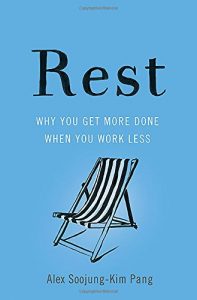
I just interviewed a guy named Alex Pang and he wrote a book called Rest and he is all about power naps, taking vacations, even sabbaticals, and stuff; that was a fun interview. I don’t take enough naps, for sure. I maybe take one every month or so, maybe two a month, but not anywhere close to once a day.
I didn’t do it either until about maybe three or four years ago, four or five years ago when I hung out with Tony Schwartz, friend of mine. Tony wrote some really cool books about that in The Energy Project and about what I was seeing done a lot of research on that, so I said, “I should probably try that out.” I did and it worked. It’s fabulous.
That’s awesome. Speaking of smart friends and colleagues, people that you know, people maybe that you’ve coached, who has the most impressive GTD setup, adheres to it, and has had life-changing benefits from it? I’m sure you’ve got plenty of case studies of celebrities and powerful people who swear by GTD and have made fortunes because of it. Anyone you want to share?
I don’t know if they made a fortune by it, but there are two people that come to mind because they’ve been public about saying it. One is Howard Stern, changed his life, he would tell you that. And he would tell you that it allowed him to keep his businesses in Sirius Radio and all that other stuff, and still learn to paint and do some other things he wanted to do. He was about to give it all up and then he found this created a lot more room for him to be able to do cool things he wanted to do.
Another guy comes to mind is Eric Anderson. Eric built a company called Space Adventures, where you could pay him $50 million and he’d put you on the space station. If you could pass all the tests, you could do that. That’s still there. Eric said it changed his life and allow him to do tons of really cool stuff. Eric’s quite an interesting guy.
Did you ask him for a free ticket to the space station?
No. I’m not interested. I won’t even bungee jump. Who needs it.
Funny. Our planet’s pretty awesome, like why should we try and get to Mars to be in some desolate dead place?
That’s okay. Everybody’s got their own thing.
Okay, let’s distinguish a few core concepts of GTD for our listeners. What exactly is a next action versus just an action that you would take? Why does it need to be the next action? What’s so powerful about that?
Well, if you haven’t discovered the next action, you’re still thinking the decision making hasn’t finished yet about your commitment. That finishes you’re thinking. If you haven’t decided what the next action is on mom’s birthday or increase your bank credit line or whether you want to get a divorce or not, it’s hung up. You’re still thinking and decision making you haven’t done yet about it.
So, you’ve blocked the critical path. You could have thought through all these other steps in the process, made a nice Gantt chart, but if you haven’t clarified what the next action is, you’re paralyzed to see that project.
You’re paralyzed if some part of you is freaked out by the thinking and decision making, you resist doing about what to do about it. Anybody who’s got a Gantt chart or a critical path chart or whatever, just pull it up right now and say, “What are all the moving parts that you actually could move on right now, what moving look like, where does it happen, and who’s doing it?” You’re going to hear a lot of reasons. People would go, “Oh God, yeah.” I’ve spent thousands of hours with some of the best and brightest that just resisted the process of the next action thinking.
Some folks are really into the tactics of GTD, all the different things of identifying the waiting for’s, the some days’, the maybe’s, assigning contacts and all that stuff. There’s a lot of tactical elements to GTD. That can stymie some people from getting past the mental roadblocks that they’re facing. There is a mindset of GTD, would you agree?
I’m not sure what you mean by that, yes. There is a way to think about what’s got my attention, what’s my desired outcome, what do I need to do about it? Where do I park a reminder if I can’t do it right now? That’s the core thought process of this, but that could take on a lot of different levels. What has your attention? Once you pay attention to stuff and to what has your attention, you’ll find out what really has your attention. There are things that have your attention right now that you’re not aware of, until you actually clear up what has your attention right now and then you go, “Wait a minute. What I really need to do is…”

Those are very meta, by the way. That little 20-second blip there is so tweetable, that’s gold right there. It’s like having awareness about your awareness, having attention about your attention.
Absolutely. Isn’t that what all the mindfulness stuff is about?
Yeah. If somebody is into all the tactics of GTD and they’re not into mindfulness, they’re not into improving their awareness or being more mindful, more intentional…
Well, give them a break. If they’d done at least any of that, that moved them way forward on that game.
If they even were willing to have a waiting for list, what are you waiting for? “Duh! Oh yeah, I ordered that and it hasn’t come yet.”
But they might just be more efficient and not more effective in their life.
What’s the difference between efficient and effective?
If you’re efficient at doing something that doesn’t mean anything is not really adding to the value of…
Tell me how effective is not efficient.
Okay, I think effective does have efficient in it.
Effective is efficient toward a higher horizon. It’s all efficiency. How well are you doing your life purpose, by the way? It’s efficiency. Isn’t that an efficiency gained?
Yeah.
You can push back on that. It’s all efficiency. What are you here to do? How well are you doing it?
If I don’t focus on the 50,000-foot view as you call it, if I’m at the runway level and trying to improve my day to day productivity, but I’m not really questioning why am I here, who can I serve, wow, can I add massive value…
You could be more efficient.
Let’s say that I just focused on my SEO consulting business without doing this podcast, for example. I wouldn’t be revealing as much light in the world, I don’t think.
Good, so you’re being efficient toward producing more light in the world.
I guess so. Maybe it’s just a…
No. It’s a tiny, little rant about the people that put efficiency up against effectiveness. I understand what they mean, but they don’t understand what effectiveness means, otherwise they wouldn’t have had that argument.
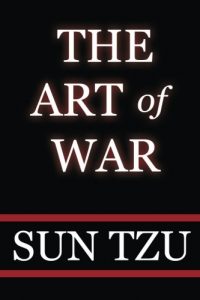
Maybe a better way to articulate this is, think of the concept of strategy versus tactics because in the Art of War, since you said, “Tactics without strategy is the noise before defeat.” I love that quote.
A strategy is tactics for a larger gain. They’re all just graduated levels of what’s your vocabulary. Making a phone call is a goal.
Sure, but not necessarily a meaningful one unless it’s the right phone call at the right time to the right person.
Come on, everybody’s doing the best they can with what they know at the time, so it is quite meaningful to them to the fact that they did it. They may have been doing it to avoid something else, which is okay, but at least they’re efficiently avoiding something else.
That’s a good segue to the concept or the idea of procrastination. A lot of us procrastinate. It’s pretty much human nature. How does GTD tackle that?
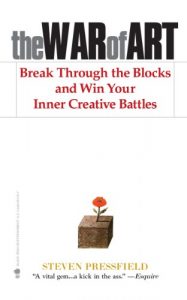
Well, a lot of people procrastinate because they’re afraid of engaging. There’s a fear of being out of control and there’s a fear of also stepping up to something that’s bigger than what you think you might want to do. If you read Steven Pressfield’s book, The War of Art, which is a great book, you’ll tend to procrastinate or resist engaging in something that’s closest to your soul. That’s one way to think about it, but in a way, it’s still the same thing called, “I’m not sure exactly what the next action is, so I’m going to avoid doing anything about it because I don’t want to feel out of control about this.”
The next action thinking, believe it or not in a strange way, you can come way down to the ground level, that deciding what’s the very next step you would need to take, pick up the phone, punch numbers, see who answers, again ask them a dumb question. That would keep you from procrastinating if you got it down to that level of granularity because all those next actions are relatively easy to do and you actually like doing a lot of actions. Those are your better days when you actually do a bunch of stuff. They feel good about that, but you need to get it down to the stuff to do, when you get out of the doing level is that a phone call to make, an email to send, a stamp to buy at the store, God knows what are all those things, but that helps.
Also, “Hey, why are you on the planet? What are you doing? When Stephan really shows up, what’s he going to be doing? What is he going to look, sound, or feel like?” The more confidence you have, the more affirmational you are about that I can do that and that’s possible for me to do. The more you’re willing to probably engage in that book you need to write, or that that person you need to ask out, or that risk you need to take in order to do all those kinds of things. Any and all of those factors will probably come in for many people for all of us in terms of things we tend to avoid.
How often would you recommend our listener review these higher-level horizons of focus, like the 50,000-foot view?
As soon as you need to, to get them off your mind. When I’m playing with my little puppy—we just got a little puppy two weeks ago—I don’t want to be thinking about my strategies. I won’t have to think about them, so I’m free to play with my puppy.
How often do you contemplate your 50,000-foot view? Actually, why don’t you quickly recap what your horizons of focus are?
I call them horizon five, four, three, two, one, and ground because that’s more universal than the US. US calls the first floor, the ground floor. Anyway, so five, four, three, two, one. Five is purpose and principles. Why are you on the planet and what really matters to you? That’s the level horizon of commitment that you have.
Then more operational than that, level four would be what’s your vision of that being done wildly successful? What would it look, sound, and feel like if you were actually doing that purpose and expressing that purpose out there in the world?
Horizon three would be, what do you need to accomplish or finish in order to make that vision actually come about over the next 3-24 months? That be their level three or higher horizon three which are goals and objectives usually.
Horizon two would be all the things you need to maintain at some level of quality so you can get there. How are your finances? How’s your health? How are your relationships? How’s your spiritual life? How’s your dog? How’s your fun factor? In your company, how’s staff development? How’s asset management? Whatever all the things are that you need to do so that you can get where you want to go. That’s horizon two, were all the things you need to maintain, and focus on, and manage.
If you don't need it, throw it away. Keep your life as minimal as you need to. Share on XHorizon one would be all the things you need to finish. “Oh, I got tires on my car, my vacation is coming up, I need to hire the vice-president of marketing, I need to get a dog for my daughter.” There are all the projects you have. Most people have 30-100 of those.
Then you have the ground horizon which is all the actions you need to take about any of those moving parts for many of those other things.
I think you call that the runway.
Yeah. Emails to send, stuff to buy at the store, stuff to talk to your life partner about, documents you need to draft, websites you need to surf. Most people have 100-200 of those right now just in terms of real time. Those are the different horizons of commitments. When you want to say, “What do we need to get things done? What do we need to get done?” You need your purpose, make your vision happen, handle your goals and your objectives because you need to make that happen, maintain all the stuff appropriately in terms of all the things to keep your life balanced and healthy so you can move in the direction you’re going, and then all the projects you to finish about all that, and all the actions you need to take about any of those kind of things.
Do you want to know what to get done? That’s it, how you do it. I couldn’t get it any simpler than that. I just try to reduce it as much as I could about what it is that we’re all engaged in and the complexity of these lives that we’re living and that’s about it.
How often should we be reviewing all of those different horizons as a part of the weekly review. Is it once a month, is it every single day?
As often as you need to, to get them off your mind. How often should you and your life partner talk about your lifestyle, career, and where you’re going? As often as you need to. How often should you look at all the projects you have? That’s probably the weekly review. It ties to the project level horizon. How often should you review your job description if you have a boss, or you’re trying to manage your company, or you’re trying to hire people to figure out your org chart? That’s horizon two. You probably need to do that as often as things have changed and people have different job descriptions or roles and accountability.
When we were having dinner in Lisbon and I was telling you that I am terrible with my weekly review. I fell off the wagon and I don’t think I’ve ever come back on. I occasionally do a weekly review, but it’s so overwhelming for me because I have over 5000 next actions in my things database that it scratches the surface just trying to block out 1-2 hours of time to do a weekly review. It is just buried and I feel like I’m drowning. It doesn’t feel good to do the weekly review so I don’t do it. What’s the secret here to…
How conscious do you want to be?
I want to be super conscious. I want to be 100% present, aware, and intentional.
You’ve been to those rah-rah seminars. You need to go to those 5000 things and go, “No, no, someday maybe, someday maybe, no, no,” skinny and done.
To how many?
As many as you can tolerate to look at on a weekly basis and see how you’re doing.
Should I declare next action bankruptcy like…
Absolutely. Just go dump it on Things and Evernote and start again with real stuff, that’s it. That’s a way to do it.
You told me years ago, maybe it was a decade ago, to create a DMZ folder because I had this huge inbox in my email. I wanted to get to inbox zero, but I felt like it was impossible. I had thousands and thousands of emails. You give me this pearl of wisdom. You said, everything in the inbox, drag it into a DMZ folder—demilitarized zone—and start fresh. All the stuff that you had in the inbox is still there, you didn’t delete it, but it’s in a DMZ folder, and you start implementing the new techniques from this day forward on the inbox. It worked like a charm. It was amazing. You’re suggesting doing the same thing but with my to-do list.
Sure. You’re not doing them anyway.
Fair point. There are plenty of things on there that have been there for over five years.
That’s okay. As long as every five years you look at it and say, “Should they still be there?” I’m not saying dump everything. I’m just saying make sure you don’t have your attention on any of those things that you might want to have attention on. Here’s all the cool and potentially creative or crappy ideas I’ve ever had in my life and just make a huge pile of that. That’s fine. Some part of you needs to make sure that you don’t have anything lurking in there that’s got your attention and that you have some level of commitment to curate that on some regular recursion. That’s all.
That’s where I disagree with recurring. I don’t know if you would disagree with me on that matter. I’m not saying you should necessarily minimize everything. I just said you need to categorize it so some part of your brain is not hooked into it.
Yeah. The Marie Kondo approach is, if it doesn’t spark joy, delete it, get it out of your life. But what you’re saying is, you just park it somewhere as long as it doesn’t have your attention.
Sure. Otherwise, the web would have blown everybody up to begin with.
What does the weekly review look like? Is it an hour, is it a half-hour, is it two hours?
It depends on how complex your life is, how much stuff has changed in the last week or so, and how current your system is to begin with. It could be anywhere from half an hour to two hours to do it.
Okay, so somewhere in that ballpark. What all goes into the weekly review?
The first thing you look at is your calendar, what’s coming up. Look at the last few weeks and what have you, “Oh my God, that reminds me,” and then look at everything coming forward to you that says, “Oh God, I need to make sure you’ve done at least that.” How long does that take? By the way, is that a bad thing to do? Is that an unnecessary thing to do? Grow up. Locate what sucks up space and time in terms of all that stuff, that’s about the simplest thing you can do. It’s the first thing I do. Take however long that takes you to do that, 5 minutes or 10 minutes.
Accept the current reality in whatever form it is. Otherwise, you're stuck with what you resist. Share on XOkay. You also review the project list, you review the…
I review all my list. I mark off anything that’s been finished or anything that’s changed, then I go back through every single list to be able to do that, then I go back to anything else that happened in this last week or so since I did my last review that I haven’t really clarified that needs to be added to the project list. Then, what’s the next action on that. Then I make sure there are next actions on all of my projects. Many times, the actions have been completed, I mark that off, but I haven’t had any time to figure out what the next move is, so I need to go back to it and make sure all that’s clear and clean.
Let’s take the someday maybe list, as an example. The someday maybe list, you review it but with the intention of I’m going to see if there’s anything that should be deleted off that list, I’m going to see if there’s anything that should be moved from a someday to the projects list or turn that into the next action.
Yeah.
Okay. It’s not just a review process, it’s a review with an outcome.
This is not a static process. It’s quite a creative process because it will get you to think about stuff. Stuff landed in there because it’s something that went on your mind, but things have changed, so it’s a way to recalibrate and refocus.
I have a lot of tabs and windows open in my browser. I’m sure this is something that a number of my listeners have some similar situation, lots of tabs or windows. Is that something that you would also review as part of your weekly review and then do something with?
I don’t do that, so I don’t know. I have no tabs open, except one tab I’m working with. I have nothing on my desktop.
That’s beautiful.
I park things there temporarily, but then once I figured it out, I move it to where it goes in my reference system. It’s clean so I have a clean desktop.
That’s so good. I don’t and I need to. I also need to be just in one tab. There’s an app, I forget what it’s called, well there’s a few versions and a few different options to choose from. I think one of them is Desktopple. It will hide everything other than the current window. All the different applications that are running in the background, even the top bar with File, Edit, View, and all that, it all gets blackened out and then all you see is the Word document you’re working on. That’s a pretty cool idea.
Why do you need an app for that? That’s what I do.
You’re a superhuman in terms of productivity. I don’t know. Very many of my listeners or just regular…
But why? Why do you keep all that stuff open?
Why do people have more than one thing sitting on their physical desktop like multiple papers, business cards, whatever. They’re triggers and we’re not perfect animals.
They’re triggers, they’re not working out.
How do you recommend somebody who feels a little overwhelmed that I’ve got an unclean desk, I don’t have a clean desktop on my computer either, I don’t have a clean work environment on my computer, I’ve got one app open to work on, I’ll also have 20 other apps running in the background, and let’s say the browser is one of those 20 apps that have 30 or 50 tabs open. This is not atypical. What do you tell that person to do to get a handle on all of it, because it does feel overwhelming to just clean it all up?
The whole world is available to you through Google right now. You want 15 apps? 15 tabs? Fine. Do you have any attention on that? The problem is whether you think you should be doing something with or about those tabs. You could pull those tabs up at any time.
I usually have 15-16 programs running in the background. I can flip between Lotus Notes or IBM Notes. I can go into Chrome and I go to Quicken, I can go to Evernote, I can go to whatever it is that I’ve been working on. Those are still looking alive and well, so what? I just don’t have open tabs telling me you would, could, should, need to, ought to do something about this.
What you’re saying is to take all those open tabs and open apps…
Close them up.
Anything that is…
Open what you need when you need it. It’s called bookmarks.
I use an application called Pocket. Are you familiar with Pocket?
No.
I love those app. It’s getpocket.com. It allows my team to see all my bookmarks as well and I can add tags to the bookmarks. I do that and then my team uses that information to determine what tweets to write for me. They ask me, so stuff gets tweeted throughout the day that’s from me supposedly, but it’s my team writing it. It’s based on what’s in my pocket.
Same with my newsletter. I get my team out writing interesting copy for my weekly newsletter to my list, and I don’t have to write that stuff myself. I don’t even have to brief them on what I want to write about. They just use pocket as inspiration which is pretty cool.
As far as all those open tabs, I think the process from what you’re describing and everything we’ve been talking about, is to determine if there is any attention that is being taken in our mind by that tab, close that tab out and the attention that needs to be chronicled, or addressed, or whatever, you put it in your trusted system as a next action.
Correct.
I know we’re out of time. Actually, I want to ask you one last question before we wrap up. What’s your legacy?
A world with no problems, only projects.
That’s awesome. Do you have anymore books in the works that are going to be part of that legacy?
No. I’ve said it all.
Awesome. All right, so if folks got inspired to make some behavior changes to start putting some systems in place, applying your GTD methodology hopefully, what is their next action? Where should they go?
Just go surf gettingthingsdone.com. It’s a free newsletter, we’ve got some cool stuff I write regularly and you’ll see all the people around the world. We have franchisees and partners all around the world, 3000 people a month are going through GTD trainings all over the world in 70 countries. You can go to the website, see what that is, and see other things to play around with.
You can get the book, you could take a workshop from one of the people that have been trained in the methodology, maybe even get some coaching, one-on-one coaching from somebody who’s been trained on the methodology, and maybe change some of their software apps that are more GTD-friendly, and all that good stuff. Thank you so much, David, this was a lot of fun.
Thank you, Stephan.
It was very inspirational to our listeners. I really want them to make some changes and apply the system because it’s been so life-changing for me. I know it’ll be life-changing for everybody else, too.
Thanks, Stephan. My pleasure. Thanks for the invitation.
All right. Well, take care. Listeners, do something. Get out there, make some behavior changes, apply some systems, and get some more stuff done. This is your host, Stephan Spencer signing off.


